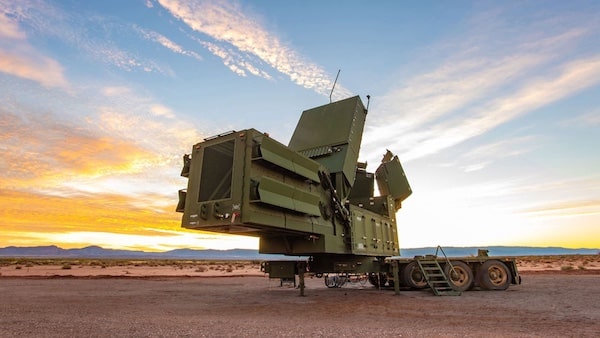China announced sanctions against seven U.S.-based military industrial companies and their senior executives last week. It claimed the move was a “countermeasure” against the U.S. providing “huge military aid and arms sales” to its Taiwan region.
The decision of sanctions was announced by the Chinese foreign ministry on its website and confirmed by spokesperson Mao Ning in a regular press conference on Friday, December 27.
The sanctioned defense contractors/companies include, Boeing subsidiary Insitu Inc, Oceaneering International, Hudson Technologies, Raytheon Technologies Canada, Raytheon Technologies Australia, and Saronic Technologies, Global Times reported.
The sanctions would freeze all the assets belonging to the companies and their executives in China apart from banning all future trade and collaboration with them.
On January 3, another set of measures targeting U.S. companies was announced by the Ministry. China announced that a total of 28 companies would face export control measures including “Lockheed Martin and five of its subsidiaries; General Dynamics and three of its subsidiaries; three subsidiaries of Raytheon; one subsidiary of Boeing; and more than a dozen other companies,” according to Voice of America. 10 of the 28 companies, including the subsidiaries of Lockheed Martin, General Dynamics and Raytheon, were designated “unreliable entities”, which subjects them to stricter sanctions.
Despite Chinese objections, the U.S. has approved billions of dollars of arms sales to Taiwan, apart from announcing billions of dollars in “defense support” in recent years. Recently it approved a defense support package of over USD 571 million as well as arms sales of USD 385 million, Reuters reported.
In October, the U.S. had announced another USD 2 billion arms sales package to Taiwan according to a Reuters report. The deal includes air defense missile systems for the first time. The missile defense system has been battle-tested in Ukraine, report says.
Taiwan is internationally recognized as a part of China. The U.S. too has declared its commitment to the “one China” policy and maintains no formal diplomatic ties with Taiwan. Nevertheless, it has repeatedly supported the Taiwanese factions who claim its independence from China. In recent years, successive U.S. governments have, rather provocatively, declared their commitment to Taiwan’s independence amidst the Chinese concerns of rising separatism there.
China claims that U.S. weapon sales to Taiwan are a violation of the “one-China” policy and an attempt to promote separatism. It has also claimed that U.S. policies towards Taiwan violate mutual agreements. The agreements, signed in the 1980s lay down the principles of non-interference in China’s internal matters, preventing violations of Chinese sovereignty and respecting its territorial integrity.
U.S. must abandon its “Cold War mentality”
China also claimed on Friday that the U.S. national defense authorization act for fiscal year 2025, approved by president Joe Biden on December 23 contains negative articles against China.
It had earlier urged that the U.S. drop its “negative China related” contents from the act as it presents China as a threat and talks about increasing military support to Taiwan and calls for targeting China’s developments in science and technology. China has termed them as “red lines” and “core interest” which must be protected at any cost. China has said that the act reflects “Cold War zero-sum mentality and ideological bias” which goes against the “steady, sound and sustainable development of China-U.S. relations.”
“It is inevitable that China and United States, as two major countries, will have some differences and disagreements, but they should not undermine each other’s core interests, still less engage in conflict and confrontation,” Xu Dong, spokesperson of foreign affairs committee of the National People’s Congress said last week.
Mao Ning, during her press conference on Friday reiterated her country’s position asserting U.S. attempts to seek “Taiwan Independence” are bound to fail. She further said that attempts to promote separatism by “arming Taiwan will only backfire.”
She urged the U.S. to correct its policies vis-a-vis Taiwan and towards China’s development and adhere to existing mutual understandings. She underlined that “China will continue to take all measures necessary to firmly safeguard our sovereignty, security and development interests.”

